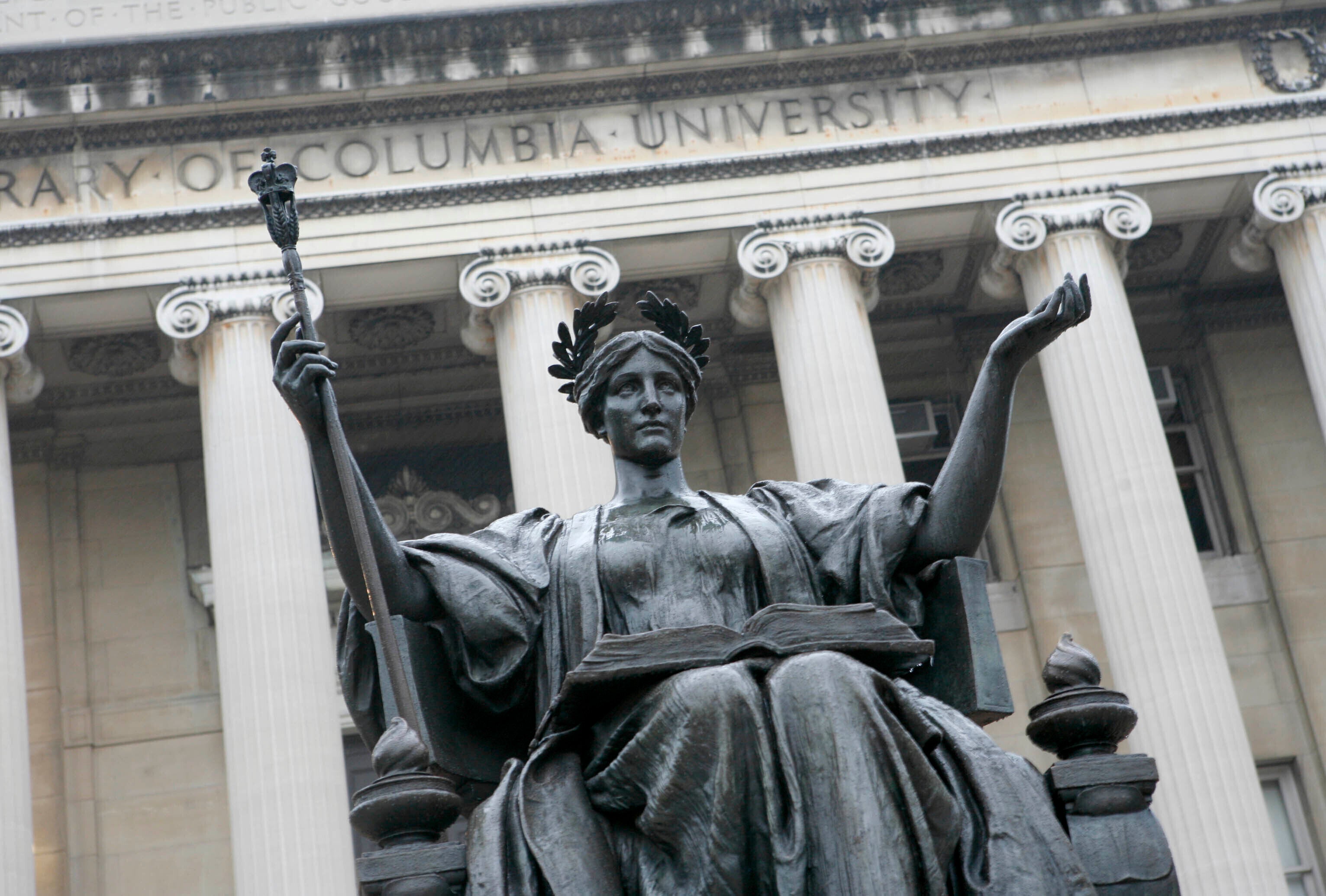Columbia University president to testify in Congress on college conflicts over Israel-Hamas war
Four months after a contentious congressional hearing led to the resignations of two Ivy League presidents, Columbia University’s president is set to appear before the same committee over questions of antisemitism and the school’s response to escalating conflicts on campus

Four months after a contentious congressional hearing led to the resignations of two Ivy League presidents, Columbia University's president is set to appear before the same committee over questions of antisemitism and the school's response to conflicts on campus over the Israel-Hamas war.
Nemat Shafik, Columbia's leader, was originally asked to testify at the House Education and Workforce Committee's hearing in December, but she declined, citing scheduling conflicts.
The December hearing instead featured the presidents of Harvard University, the University of Pennsylvania, and the Massachusetts Institute of Technology, whose lawyerly responses drew fierce backlash and fueled weeks of controversy. The presidents of Penn and Harvard have since resigned.
During a heated line of questioning at the December hearing, Rep. Elise Stefanik, R-N.Y., asked the university leaders to answer whether “calling for the genocide of Jews” would violate each university’s code of conduct.
Liz Magill, the then-president of Penn, and Claudine Gay, then-president of Harvard, both said it would depend on the details of the situation. MIT president Sally Kornbluth said that she had not heard a calling for the genocide of Jews on MIT’s campus, and that speech “targeted at individuals, not making public statements,” would be considered harassment.
Almost immediately, the careful responses from the university presidents drew criticism from donors, alumni and politicians. Magill resigned shortly after the hearing. Gay stepped down in January, following an extended campaign that accused her of plagiarism.
Shafik is expected to testify Wednesday along with Columbia University board members. Tensions and accusations of hate and bias have roiled Columbia, like at its sibling colleges, but Shafik has the benefit of hindsight in preparing her remarks. In an op-ed published in the Wall Street Journal Tuesday, Shafik emphasized the delicate balance between protecting free speech and fostering a safe environment for students on campus.
“Calling for the genocide of a people — whether they are Israelis or Palestinians, Jews, Muslims or anyone else — has no place in a university community,” Shafik wrote. “Such words are outside the bounds of legitimate debate and unimaginably harmful.”
Since the Oct. 7 Hamas attack on Israel, tensions have run high on university campuses. Jewish students have said that their schools are not doing enough to address instances of antisemitism. Meanwhile, students who have organized in support of Palestinian rights say they have been disproportionately targeted and censored by campus administrations.
Columbia, along with many other colleges and school districts, is the subject of a series of Department of Education investigations into antisemitism and Islamophobia on campuses. It has also been targeted by lawsuits from both sides. The New York Civil Liberties Union sued over whether the university singled out two pro-Palestinian student organizations when it suspended them from campus over protests in the fall. Groups of Jewish students have also filed suit, saying antisemitism on campus violates their civil rights.
___
The Associated Press’ education coverage receives financial support from multiple private foundations. AP is solely responsible for all content. Find AP’s standards for working with philanthropies, a list of supporters and funded coverage areas at AP.org.
Bookmark popover
Removed from bookmarks